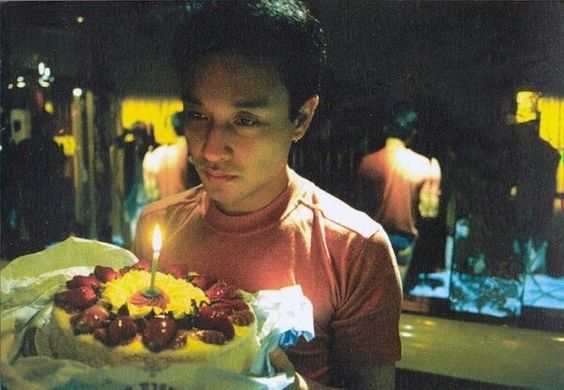
Why Does Wong Kar Wai Still Influence Us After All These Years?
par remi mourany
·
Wong Kar Wai, the iconic Hong Kong filmmaker, has left an enduring legacy on global cinema that continues to shape the work of filmmakers, artists, and audiences alike, even decades after the release of his most renowned films. His works are more than just movies; they are deeply emotional experiences that resonate with viewers on a profound level. But what is it about Wong Kar Wai's art that continues to captivate and inspire us, year after year?
Let’s explore this question using In the Mood for Love (2000) and Chungking Express (1994) as examples to uncover what makes Wong Kar Wai's films so timeless and influential.
Timeless Emotional Resonance
One of the key reasons behind Wong Kar Wai’s lasting influence is his remarkable ability to capture the complexities of human emotion in a way that feels timeless. His films are driven not by plot or action, but by the emotional journeys of his characters. Whether it’s the poignant loneliness of unrequited love in In the Mood for Love or the existential angst of urban life in Chungking Express, Wong Kar Wai explores universal themes that transcend cultural and temporal boundaries.
In In the Mood for Love, the restrained yet intense connection between Mr. Chow and Mrs. Chan reflects the deep, often unspoken emotions many of us experience in our own lives. The film’s exploration of love, longing, and loss resonates with audiences across cultures and generations. Wong Kar Wai’s ability to evoke such powerful emotions with subtlety and nuance is what keeps his films relevant, no matter how much time has passed.
Visual Poetry
Wong Kar Wai is a master of visual storytelling, often described as a poet of the screen. His use of color, light, and composition creates a dreamlike atmosphere that immerses viewers in the world of his characters. The saturated reds and deep shadows in In the Mood for Love convey a sense of passion and melancholy, while the dynamic camera work and vibrant colors in Chungking Express capture the chaotic energy of city life.
His distinctive visual style has profoundly impacted filmmakers and photographers worldwide. Directors like Barry Jenkins (Moonlight), Sofia Coppola (Lost in Translation), and Quentin Tarantino (Pulp Fiction) have all drawn inspiration from Wong Kar Wai’s ability to tell a story through visuals, using color and composition to evoke emotion and atmosphere.
Music as a Narrative Device
Another aspect of Wong Kar Wai’s lasting influence is his innovative use of music, which goes beyond setting the mood to becoming an integral part of the narrative. The repetitive use of certain songs, such as Nat King Cole’s “Quizás, Quizás, Quizás” in In the Mood for Love or The Mamas & The Papas’ “California Dreamin’” in Chungking Express, creates a rhythm and continuity that mirrors the emotional states of the characters.
Music often acts as a character in itself, reflecting the protagonists' inner worlds and heightening the emotional impact of the scenes. This approach to integrating music with narrative has inspired countless filmmakers and remains a signature of Wong Kar Wai’s style, making his films instantly recognizable and perennially influential.
The Art of Ambiguity
Wong Kar Wai’s films are often characterized by their ambiguity and open-endedness, inviting multiple interpretations. Instead of providing clear answers or resolutions, he allows his films to exist in a state of uncertainty, reflecting the complexity and unpredictability of real life. This ambiguity is part of what makes his films so compelling and enduring.
In In the Mood for Love, the relationship between Mr. Chow and Mrs. Chan is never fully defined, leaving audiences to ponder the true nature of their bond. This lack of closure can be frustrating, but it also lends the film a sense of authenticity that mirrors real life. Wong Kar Wai’s refusal to neatly tie up his narratives is a testament to his respect for the intelligence and emotional depth of his audience, and it’s this quality that keeps viewers returning to his films, discovering new layers of meaning with each viewing.
Cultural Resonance
Finally, Wong Kar Wai’s influence endures because his films capture the essence of their time while addressing themes that remain relevant today. His portrayal of 1990s Hong Kong—with its neon lights, bustling streets, and fleeting connections—offers a snapshot of a city and a moment that feels both unique and relatable. His exploration of identity, migration, and the tension between tradition and modernity resonates with people worldwide, especially in our increasingly globalized society.
His films are not just cinematic masterpieces; they’ve become cultural landmarks that shape how we think about love, time, and the human experience. It’s clear that his influence will continue to grow as new generations of filmmakers and cinephiles discover the magic in his work.
In the end, what makes Wong Kar Wai’s films so special is their ability to delve deeply into human emotions, craft visually stunning narratives, and blend music and mystery into something unforgettable. They resonate with us because they touch on universal feelings and experiences, keeping them as fresh and relevant now as they were when they first captivated audiences.









